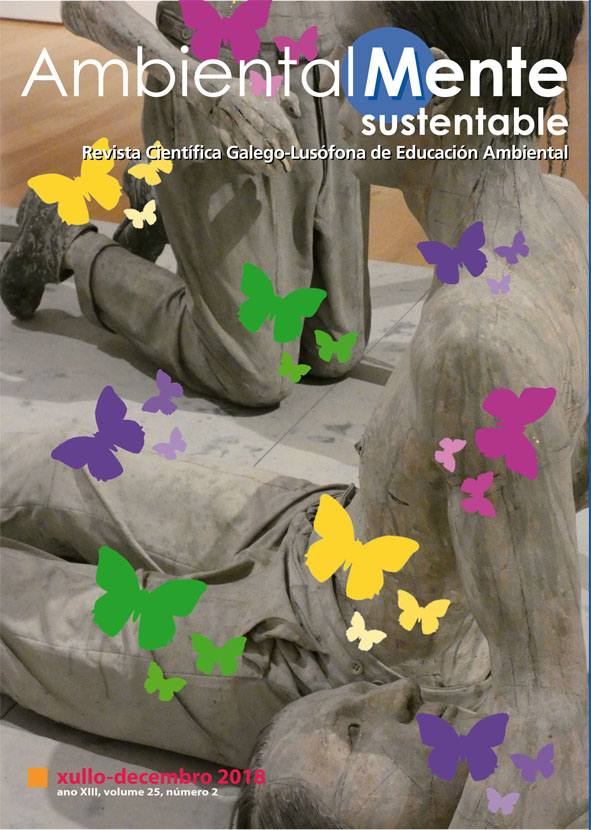Vol. 25 Núm. 2 (2018)

O movemento educativo que relaciona aspectos socias e ambientais para colaborar na formación dunha cidadanía global, ecolóxicamente responsable e socialmente xusta, ven denominándose como Educación Ambiental.
Os novos escenarios internacionais borran do discurso hexemónico a Educación Ambiental como referencia, e buscan e crean alternativas as veces de dudoso avance. O discurso da sostenibilidade tan débil como maleable non lograr destronar ao xa maduro movemento educativo.
A Educación Ambiental existe porque hai colectivos que resisten. Grupos de mestras e mestres nas escolas, profesorado e alumnado nas universidades, políticos e políticas nas administracións locais e nacionais, organizacións sociais nos municipios, organizacións internacionais nos debates... e moitas persoas no día a día que demostran a necesidadee dunha educación comprometida coas persoas e co ambiente, lonxe de modelos desenvolvistas que minan as posibilidades dun desenvolvemento humano xusto e equitativo.
Neste número de ambientalMENTE sustentable ofrecemos reflexións, retos e propostas para impulsar políticas públicas de Educación Ambiental, prácticas comprometidas e transformacións desde o local cunha perspectiva global. O Planete Terra merece, as persoas tamén.

